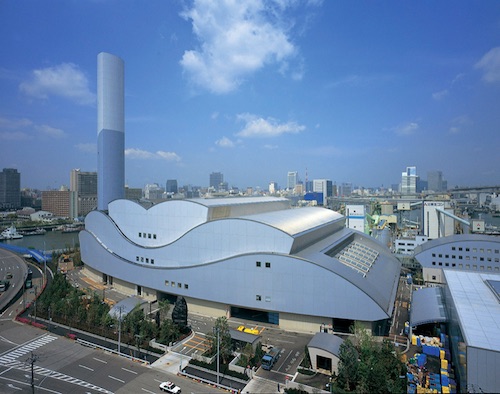|
|
|
|
|
|
- Renovation will extend the service life and increase the energy efficiency of the stoker type incinerator facilities, completed in January 1999.
- Completion is scheduled for January 2023, and is expected to reduce CO2 emissions by around 4% annually. |
TOKYO, July 27, 2020 - (JCN Newswire) - Mitsubishi Heavy Industries Environmental & Chemical Engineering Co., Ltd. (MHIEC), a Group company of Mitsubishi Heavy Industries, Ltd. (MHI), has received an order from Clean Authority of TOKYO for facility renovation to extend the service life of its Minato Waste-to-Energy (WtE) Plant. The facility has a total waste treatment capacity of 900 tonnes per day (tpd). MHIEC will refurbish and improve the stoker type incinerators(1) and related equipment, extending the service life of the facility, and enhancing its energy efficiency. The contract is valued at 7.6 billion Japanese yen, with completion scheduled for January 2023 (three-year project). MHIEC received a similar order from Clean Authority of TOKYO in fiscal 2016 to extend the service life of its Ariake WtE Plant, which was completed in fiscal 2019. This order succeeds in that previous project.
 | | Minato Waste-to-Energy Plant in Tokyo |
Clean Authority of TOKYO was established in fiscal 2000 to handle waste treatment for Tokyo's 23 wards. Located in the Chiyoda Ward main government building, the organization manages 21 plants throughout the city, including facilities undergoing renovation. The Minato WtE Plant was designed and built by MHI, and completed in January 1999. The WtE facility comprises three stoker type incinerators and related equipment, each with capacity of 300 tpd, and can generate up to 22 megawatts (MW) of electricity.
The plant facility renovation contract to extend service life covers refurbishment of superannuated main equipment, including the refuse feeder and incinerator furnace, along with equipment for ash treatment, bag filter, scrubber, boilers, power generators, and steam condensers, as well as electric instrumentation and water supply systems. The adoption of nickel base alloy cladding technology to counter boiler tube thinning, upgrading of main equipment for steam turbines and power generators, and improved combustion with control technologies utilizing infrared (IR) sensors, will allow for long-term stable incineration and operation. The facility will also utilize high-efficiency motors and inverters for electric components to increase energy efficiency. These measures will reduce CO2 emissions by around 4% annually, helping to curb global warming.
Renovation of WtE plants is increasing as operators aim to extend the service life of facilities and reduce their environmental impact. The Japanese national government also established a related subsidy system(2) in fiscal 2010, further accelerating this trend.
MHIEC succeeded MHI's environmental protection business in 2008, incorporating its accumulated technological development capabilities in environmental protection systems, and its broad expertise in the construction and operation of waste management facilities both in Japan and overseas. Based on this strong track record, MHIEC is well-positioned to provide comprehensive solutions, from plant construction to operation.
Going forward, on the strength of this record and boosted by this latest contract, MHIEC will pursue additional renovation projects to enhance the energy efficiency and stable operation of existing plants, and actively offer solutions to lower operation and maintenance expenses and other lifecycle costs.
(1) A stoker furnace is the main type of WtE plant. Waste is combusted as it moves along on a fire grate made of heat-resistant castings.
(2) This program, administered by Japan's Ministry of the Environment, is centered on improvements to existing facilities for more effective use, and as a measure to mitigate climate change in the waste sector. Municipal governments seeking to extend the working life of their MSW facilities and implement climate change measures are eligible for subsidies on projects that reduce CO2 emissions (promoting the introduction of leading-edge facilities), or grants for establishing a sound material-cycle society, equivalent to one-half or one-third of project costs.
Topic: Press release summary
Source: Mitsubishi Heavy Industries, Ltd.
Sectors: Energy, Alternatives
https://www.acnnewswire.com
From the Asia Corporate News Network
Copyright © 2026 ACN Newswire. All rights reserved. A division of Asia Corporate News Network.
|
|
|
|

|
|
|
|